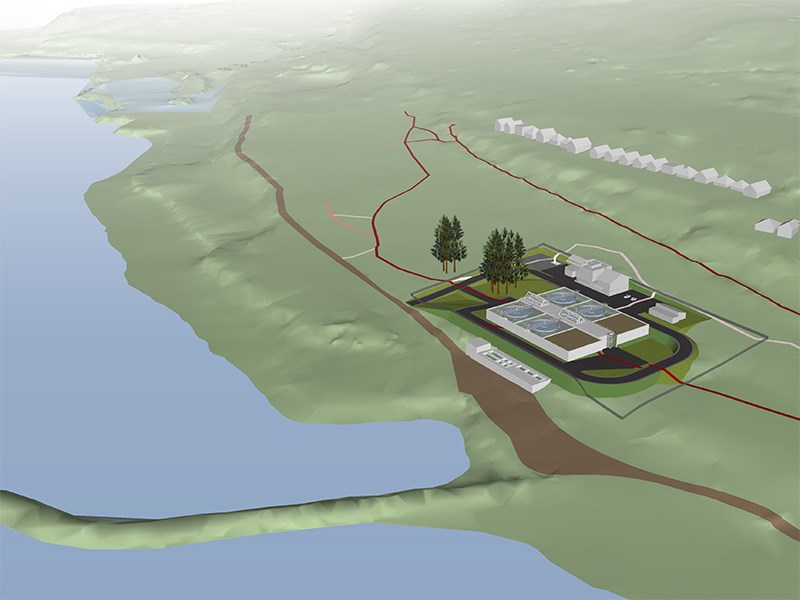After 18 years of often contentious debate, City of Powell River council approved a consolidated wastewater treatment plant that will bring the city into compliance with federal and provincial environmental regulations.
Council selected the location and technological process for the new wastewater treatment plant at its regular council meeting on February 15, allowing staff to move forward with a final plan to submit for federal and provincial infrastructure grants in the spring.
Action to get predesign of the plant, choose the treatment process and confirm the location was ramped up in December 2017 to meet critical funding deadlines and any further delays would have jeopardized the opportunities.
A final push by a group of Townsite homeowners who had been protesting the public-engagement process and objecting to the site did little to dissuade council.
Some of those residents persuaded mayor Dave Formosa to raise the idea of an alternate location south of the planned site.
“Staff does not see this as a viable alternative,” said the city’s director of infrastructure Tor Birtig in making the expected recommendation, “and we stay the course with our existing site.”
The additional design work necessary on the second site to overcome a gas main right of way, riparian setback, power and water supply, additional pumping, purchasing, subdividing and environmental and archaeological assessments would cost approximately $300,000, according to Birtig.
“The big impact would be the fact that we would not be ready to make an application should there be a funding call in the spring of 2018 as we anticipate at this time,” said Birtig. He added that sources have indicated to the city the funding will be significant.
The project will be the largest infrastructure project in Powell River’s history, estimated to cost more than $30 million.
“I have a high degree of confidence that we're doing all of the proper due diligence and it’s going to be a responsibly built and operated plant," said liquid-waste management steering committee chair and city councillor Karen Skadsheim, "and we have looked at all of the options and settled on one that is going to fit well for these outcomes.”
The city must be in compliance with environment regulations, but extensions on that timeline might be necessary as the project could take five years to complete.
When finished, the project will convey sewage from Tla’amin Nation, Wildwood, Townsite, Cranberry and Westview to one treatment facility near the existing plant in Townsite, where a high-efficiency biological treatment process will convert it to wastewater, and through an outfall into the Georgia Strait.
The location below Larch and Laburnum avenues on the old gold course includes two 10-acre parcels of land that were purchased by the city from PRSC Limited Partnership, a joint venture between the city and Tla'amin, specifically for the project in 2016 for $575,000.
The city contracted Associated Engineering for three pre-designs that were presented at a public engagement in December 2017.
“What we would like to do now that we have the process confirmed and the site confirmed,” said Birtig, “is move forward on the architecture, aesthetics, surrounding landscaping and amenities in the area.”



